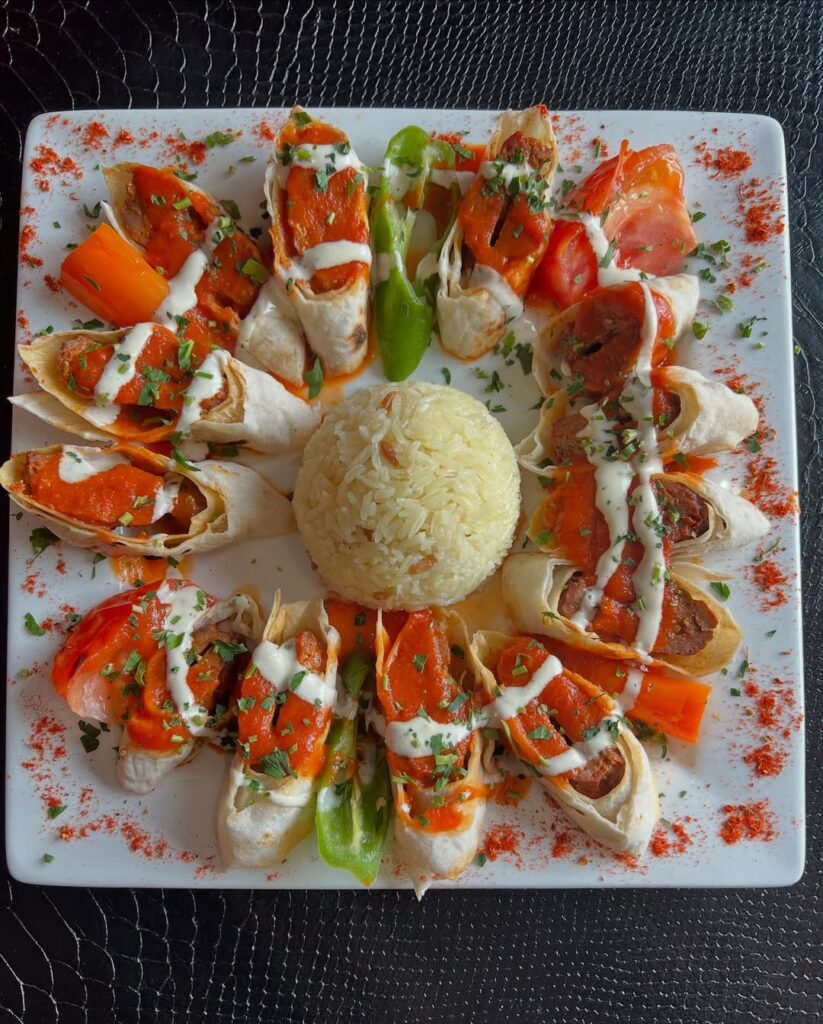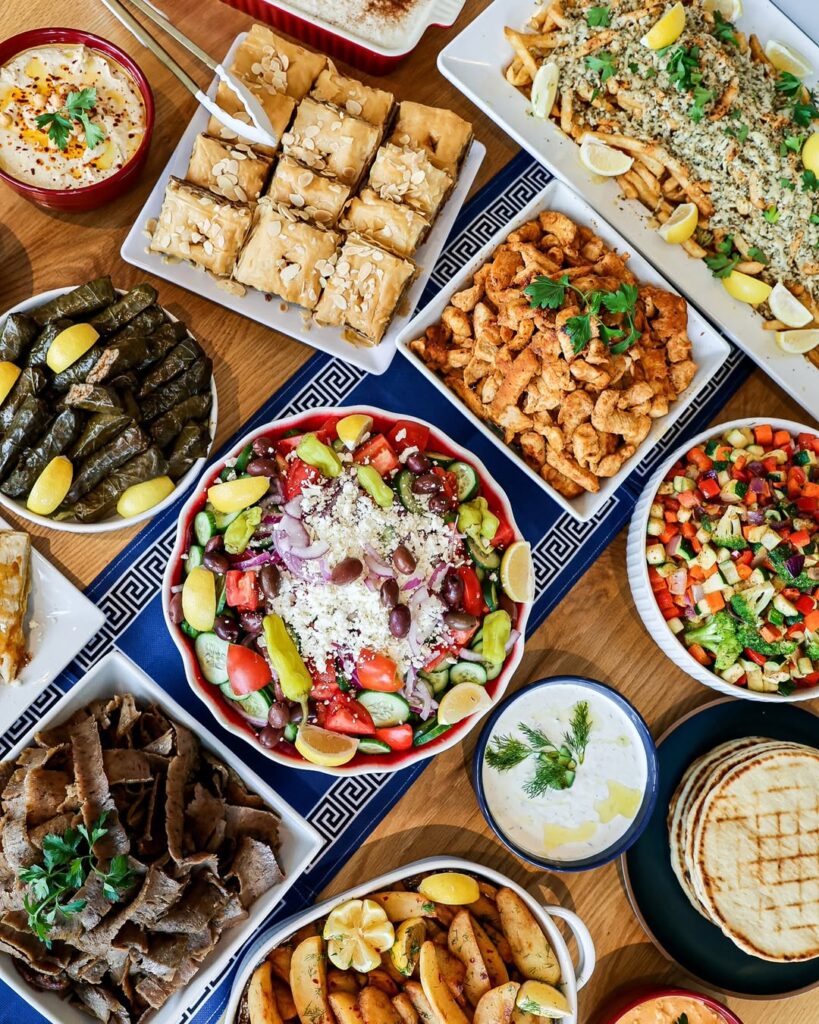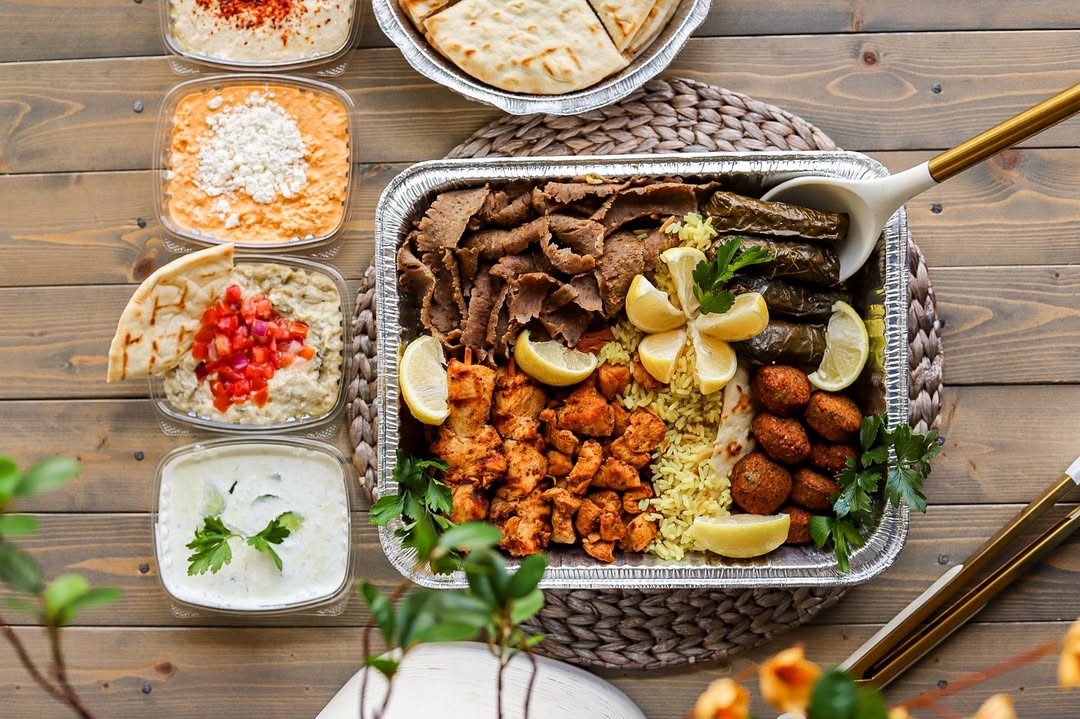The Mediterranean Secret to a Perfect Summer
The coals crackle. The olive oil gleams. Somewhere nearby, someone’s shouting for more lemon wedges.
That’s not just dinner – that’s the Mediterranean diet style grilling at work.
In the Mediterranean, summer isn’t a season. It’s a state of mind — warm evenings, simple food, slow conversation, and a fire that burns just hot enough to turn olive oil and herbs into perfume.
As a pitmaster, I’ve spent plenty of nights standing over flames. I’ve smoked brisket in the tropical heat and grilled ribs in the rainy and cold weather. But the Mediterranean way of grilling? It’s a different beast. It’s not about dominating the fire. It’s about dancing with it.
Where American barbecue leans heavy – smoke, sauce, and slow – the Mediterranean grill leans light, clean, and bright. Think grilled sea bass kissed with lemon, not slathered in sugar.
Lamb brushed with olive oil, not basted in butter.
The result: flavor that’s bold but balanced, indulgent but still healthy.
This, my friends, is how you grill the Mediterranean way – and why it might just be the smartest, simplest way to eat this summer.

Why the Mediterranean Diet Loves the Grill
Let’s start with the basics.
The Mediterranean diet isn’t really a “diet.” It’s a pattern of eating that revolves around whole, real foods – olive oil, fresh vegetables, fish, herbs, grains, and the occasional glass of wine.
And grilling fits right in.
When you grill, you cook with intensity and restraint. High heat, short time. That means fewer added fats, more locked-in flavor, and a nutrient profile your body actually thanks you for.
Unlike frying, grilling doesn’t drown your food in oil. It just kisses it – enough to create those gorgeous grill marks and a light crust while keeping everything inside tender and juicy.
From a pitmaster’s point of view, this is ideal: fire doing its job, not covering up mistakes with sauce.
And let’s talk about the health side for a second. Studies show that people who follow the Mediterranean diet have lower rates of heart disease, inflammation, and diabetes.
Add in the smoke and char of a hot grill, and you’ve got the perfect union of flavor and function.
So, in short – the Mediterranean doesn’t just love the grill.
It was built for it.
Fire and Flavor: The Mediterranean Grilling Philosophy
The Mediterranean approach to grilling comes down to one idea: simple ingredients, treated with respect.
Back in Greece, for example, they don’t complicate things.
A fisherman catches a sea bass. Someone lights a charcoal grill.
Lemon, olive oil, oregano – done. No ten-step marinades, no sugar glazes, no mystery spice rubs.
That’s the Mediterranean grilling philosophy – fresh, clean, unpretentious.
And it’s not just Greece. In Spain, they grill sardines right on the beach over open flames. In Italy, you’ll find pork skewers brushed with rosemary oil. Across the coast, from Provence to Palermo, the idea stays the same: let the fire reveal the food, not hide it.
When I first tried this, I noticed something funny – my grill smelled different. Cleaner. More like a campfire than a steakhouse. The combination of wood smoke, olive oil, and herbs creates a scent that’s instantly Mediterranean: smoky, citrusy, herbal, alive.
Here’s the real secret: Mediterranean grilling doesn’t aim for perfection – it aims for pleasure.
A little char? That’s flavor.
Uneven edges? That’s character.
The goal isn’t to show off – it’s to share.

The Essentials: What You Need to Grill Like a Greek
Alright, let’s get practical.
If you want to grill Mediterranean-style, you don’t need a whole new setup. You just need to simplify your toolkit.
1. The Grill:
Go with charcoal or wood if you can. Gas works in a pinch, but real Mediterranean flavor comes from open flame and smoke. Hardwood like oak or olive wood adds an authentic aroma that’s subtle but rich.
2. The Gear:
You’ll want a few essentials – metal skewers, a grill basket for small veggies or seafood, and a good basting brush for olive oil. That’s it.
3. The Staples:
Here’s your shopping list:
- Extra-virgin olive oil – your liquid gold.
- Fresh herbs – oregano, thyme, rosemary, basil.
- Lemons – acid cuts through the smoke.
- Garlic – because, of course.
- Sea salt & cracked pepper.
That combo will carry you through nearly anything.
4. The Technique:
Mediterranean grilling runs on moderate heat and patience.
You’re not searing a steakhouse crust here. You’re coaxing the natural sweetness out of your food.
Brush lightly with olive oil, grill just long enough to caramelize, then finish with lemon and herbs.
Pro Tip: Always rest your grilled food for a few minutes, then give it one last drizzle of olive oil. That’s how you turn good into Greek-level good.
Signature Mediterranean Grilled Dishes
Here’s where you start turning theory into dinner.
1. Grilled Sea Bass with Lemon and Oregano
Simple and pure. Brush the fish with olive oil, sprinkle sea salt, and grill until the skin crackles. Finish with a squeeze of lemon and a pinch of oregano. It’s coastal Greece on a plate.
2. Chicken Souvlaki with Tzatziki
Marinate bite-sized chicken pieces in olive oil, garlic, oregano, and lemon for an hour. Skewer, grill, and serve with chilled tzatziki. Smoky outside, tender inside – Mediterranean diet style grilling at its best.
3. Charred Vegetables with Feta and Herbs
Zucchini, bell peppers, eggplant – toss them with olive oil and herbs, grill until soft and blistered. Add crumbled feta, a drizzle of vinegar, and watch the table go quiet.
4. Grilled Halloumi and Tomato Skewers
Halloumi cheese holds up beautifully on the grill. Thread cubes between cherry tomatoes, brush with oil, and grill until golden. Perfect with a sprig of mint and a splash of balsamic.
Quick Marinade Formula:
3 parts olive oil + 1 part lemon juice or vinegar + herbs + garlic = instant Mediterranean magic.
Mastering Marinades: The Mediterranean Way
In the Mediterranean, marinades aren’t just flavor – they’re philosophy. Instead of drowning food in sauces, cooks use olive oil, acid, and herbs to enhance what’s already there.
A classic ratio is three parts olive oil to one part acid (lemon juice or vinegar), then add garlic, oregano, thyme, or mint. The goal isn’t to overpower but to tenderize and brighten.
Here’s the trick: time and touch matter. Fish only needs 20 minutes; chicken can rest for an hour. Overnight? That’s for tougher cuts like lamb. Always marinate in glass or ceramic, never metal – it reacts with the acid.
When you grill, pat the food dry first. You’ll get better caramelization and fewer flare-ups. Then finish with a fresh drizzle of olive oil and herbs. It’s not just a step – it’s the soul of Mediterranean diet style grilling.

Beyond the Grill: The Mediterranean Table
The meal doesn’t stop when the food leaves the flame.
What makes Mediterranean diet style grilling special is what happens after – the table.
You’ll see bowls of Greek salad, plates of grilled pita, maybe a spread of hummus, olives, and roasted chickpeas. It’s never just meat and sides – it’s a feast of colors and textures meant to be shared.
And yes, there’s wine.
A crisp Assyrtiko from Santorini or a light rosé works wonders with grilled seafood. If you’re skipping alcohol, sparkling water with citrus and mint hits the same vibe.
In the Mediterranean, they don’t rush. They eat slowly, laugh often, and savor every bite.
It’s less about the food and more about the company, the sunshine, and the ritual.
As a griller, I can tell you – the best meals aren’t the ones that impress people. They’re the ones that bring them together.
The Health Benefits: Why It’s More Than a Meal
Now for the science-minded among us – why does this way of eating actually work?
The Mediterranean diet is loaded with healthy fats, lean proteins, antioxidants, and fiber. Combine that with grilling – a method that uses less oil and keeps ingredients nutrient-rich – and you get a powerhouse of wellness in every bite.
Olive oil gives you monounsaturated fats that support heart health.
Fish provides omega-3s.
Vegetables pack in antioxidants.
Even moderate wine intake has its benefits (cheers to that).
It’s not about restriction. It’s about balance – enjoying your food, not fearing it.
And here’s something I love as a pitmaster: this diet doesn’t forbid anything.
It just teaches moderation. You can still enjoy grilled lamb or the occasional steak – you just surround it with greens, grains, and good olive oil.
That’s not a punishment. That’s freedom.
A Summer Worth Savoring
So here’s the takeaway: Mediterranean diet style grilling isn’t a trend – it’s a mindset.
It’s about slowing down, choosing real ingredients, and letting fire do what it does best: reveal flavor.
You don’t need fancy gadgets or chef credentials. Just good food, good company, and a steady flame.
Next time you fire up the grill, skip the heavy sauces. Reach for olive oil, lemon, and fresh herbs instead. Invite your neighbors. Pour some wine.
Because when you grill like a Greek, every meal becomes more than food – it becomes a celebration.
Featured image credit: @greatgreekgrillfriendswoodtx

